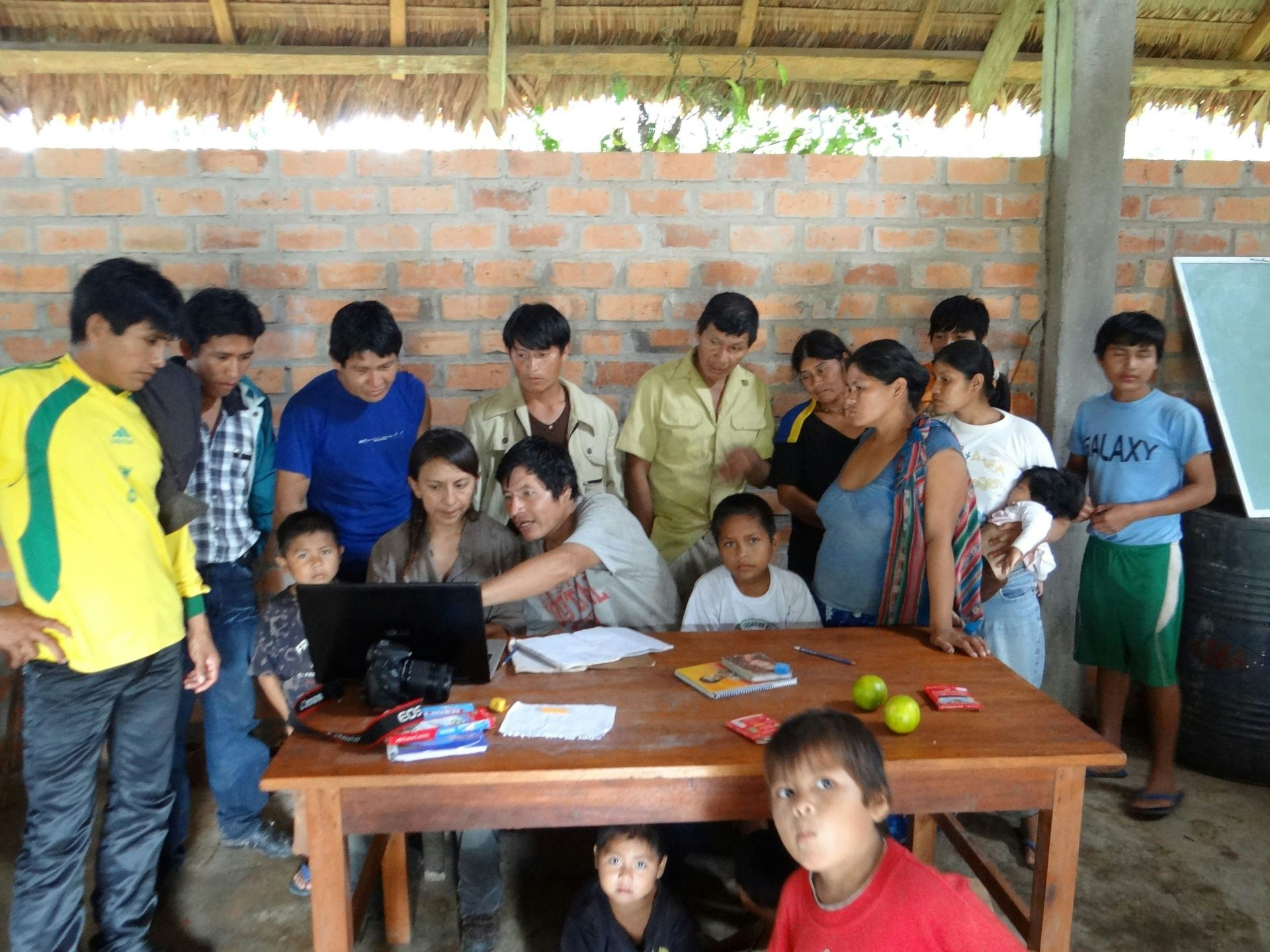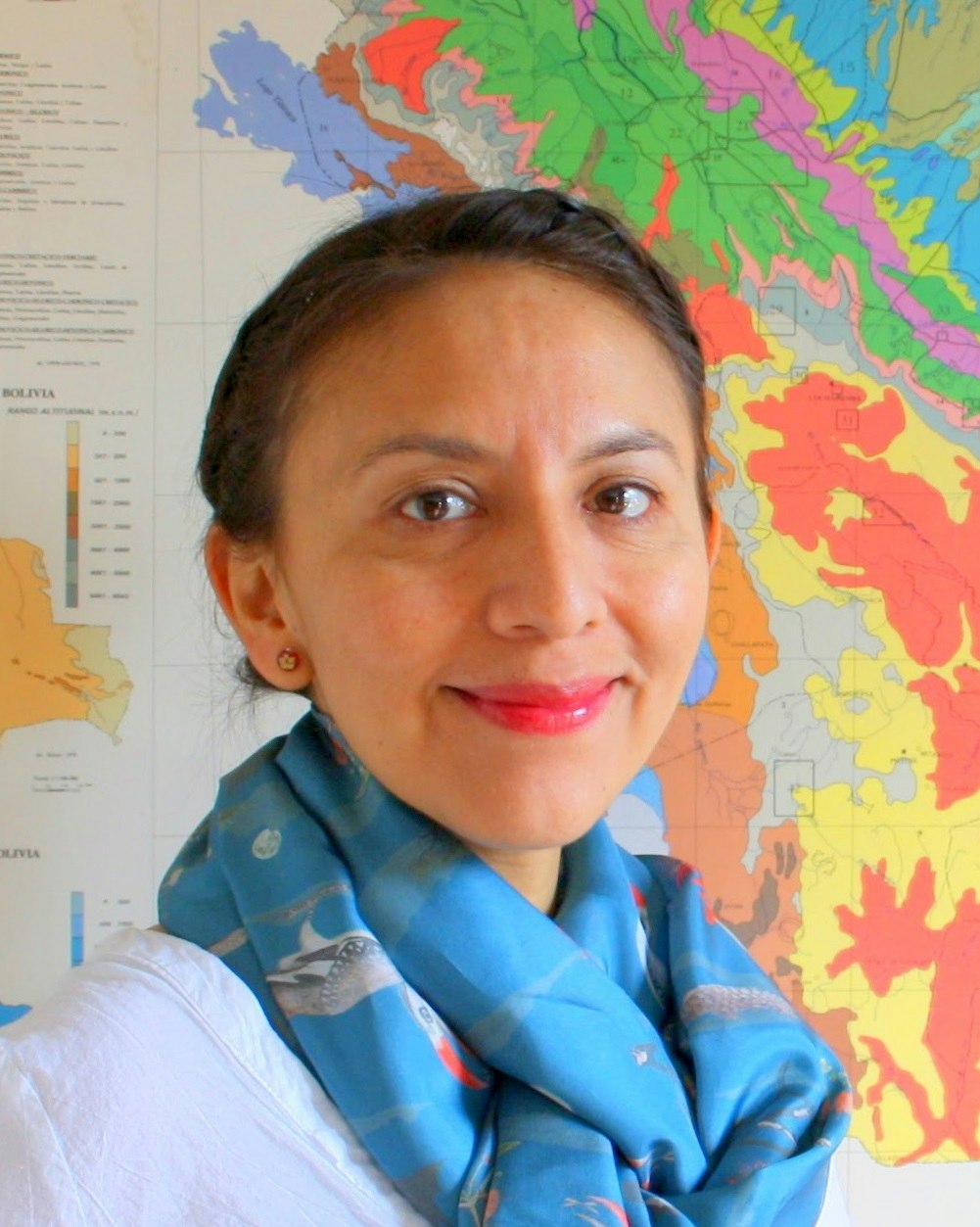threatened ecosystem
Bolivia is the southernmost country where Andean bears are found. Home to a third of suitable habitat for the species, the unprotected Inter Andean Dry Forests (IADF) represent an important stronghold for South America’s only bear. Due to extensive agricultural conversion and high levels of human activity, this mountainous ecosystem is severely fragmented, making it one of the most endangered tropical forests on Earth.

carnivore conflict
Human-wildlife conflict is a global issue. As populations expand, people are more frequently sharing space with wildlife and conflict is on the rise. In Tarija, Bolivia, severe droughts have impacted agricultural production with crop losses reaching 80%, causing people to turn to livestock rearing. This has led to increased reports of cattle and goat depredation by native carnivores, and Andean bears are sometimes killed in retaliation.

national action
Ximena Velez-Liendo is Principal Researcher at grassroots NGO, PROMETA. With 18 years of experience working with Andean bears, Ximena led the first and only national-level habitat assessment of the species status in South America, which identified the IADF as a priority area for bear conservation. This cross-disciplinary project will generate the first population estimate for bears in the country, and scale up efforts to quantify human-bear conflict. The results will be used to support a national plan for the species’ recovery and develop strategies to enable coexistence with farmers.

Ximena’s project will:
- Increase understanding of human-bear conflict dynamics and population distribution
- Adopt interventions to reduce bear attacks on livestock and prevent damage to crops
- Train community members to undertake research and conservation measures
- Develop the country’s first government supported Andean bear Conservation Action Plan with colleagues
Why it matters:
- Bolivia holds 1/3 of the world’s Andean bears
- Poverty levels reach 90% in the IADF so reducing livestock losses is crucial
- The project will coordinate national efforts to protect the species
“Coexistence with large carnivores is possible when conservation efforts are initiated and owned by local people.”
2021 continuation funding
Nature-Based Solution: £100,000 over two years
Bear Necessities: Making Space for Communities and Carnivores in Bolivia
The inter-Andean dry forest is a Critically Endangered ecosystem. The 6% that remains still holds astonishing biodiversity, including the spectacled bear, and is home to some of the most economically vulnerable communities in Bolivia. Currently, increasing levels of cattle ranching in the region are driving human-carnivore conflict, as well as degrading forests, eroding soil and causing the release of carbon. Ranching also offers a bad return on investment for communities, requiring 20 times more land, water and resource in this landscape than in the lowlands.

Ximena Velez Liendo’s nature-based solution will reduce the number of cattle in the region by 15%. She and the NGO, PROMETA, will work with communities to replace ranching with nature-positive livelihoods such as beekeeping that keep carbon locked up, and develop viable markets for products to ensure these honey enterprises are successful. Ximena will also conduct population assessments of key species in the region, including puma, the Critically Endangered Bolivian chinchilla rat and the spectacled bear, of which there are only 25 local individuals left, to further inform conservation action. Together, she and community members will create a Productive Protected Landscape (PPL) – a management framework that respects traditional land-use while integrating biodiversity conservation, nature-positive economic activity and ecosystem restoration.

This is a replicable, ecologically-sound, and socially-just model. By placing farmers in a central role for conservation, as the solution rather than a problem, Ximena’s approach will benefit both people and planet.



